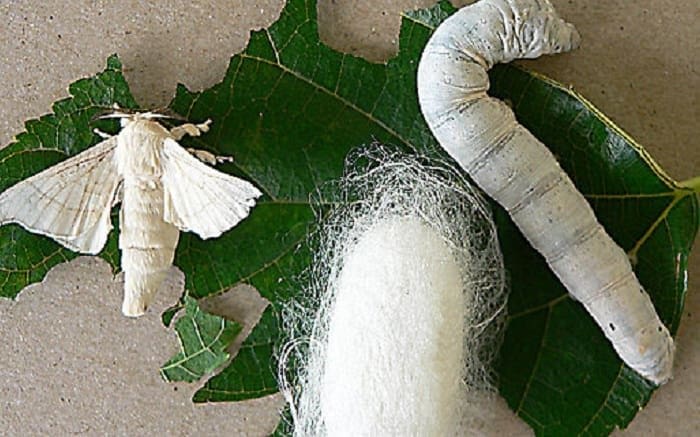A web portal “SILKS” (Sericulture Information Linkage Knowledge System) has been developed in collaboration with North Eastern Space Applications Centre (NESAC), Umiam, Meghalaya and being used by the State Sericulture Departments, Central Silk Board (CSB) & planners to find out potential areas for development of Sericulture in the States. “SILKS” is a single window, ICT (Information and Communication technology) based information and Advisory Services System for planners, field staff and farmers practicing sericulture. A total 108 districts in 24 States covered in first phase of the project. In second phase of the project, total 70 more districts in 25 states have been taken up for study under Silk Samagra – Integrated Scheme for Development of Silk Industry (ISDSI) which is in final stage.
Central Silk Board (CSB), a statutory body under the Ministry of Textiles has developed an Indigenous Automatic Silk Reeling Machine (ARM) involving domestic manufacturers for promotion under Transfer of Technology (TOT) in the field to support ‘Make in India’ concept. The Indigenous ARM of 200 end capacity has been included and promoted under the GOI Flagship Programme ‘’ Silk Samagra’’ (2017-2020) with a unit cost of Rs.76.65 lakh. CSB is providing Technical & Financial assistance for weaving and processing sector under its beneficiary oriented Central Sector Scheme “Silk Samagra’’ for the year 2019-20.
In respect of silk machinery related to Vanya silk, nine different Vanya silk reeling & Spinning machines have been promoted/implemented in various Plans. Further, the implementation of improved machines is being continued under Silk Samgra (2017-20). In order to replace/eradicate thigh reeling, which is unhygienic and against dignity of women, the Buniyad reeling machine has been developed and is being popularized. As on March-2019, 4530 Buniyad reeling machine has been distributed among the tribal women under “Silk Samagra”.
Under “Silk Samagra” (2017-18 to 2019-20) being implemented by CSB, following steps are being taken for further modernization of seed producing centres in different states for enhancing their productivity and production capacities.
- Revolving capital fund support for seed production centres
- Purchase of seed testing equipment for seed production centres
- Up-gradation of production units and cold storage facilities
To encourage Private participation in seed production, National Silkworm Seed Organization (NSSO) under Central Silk Board has initiated a move to attract small and large scale seed producers to the sector. Central Silk Board has initiated action to develop private Registered Seed Producers (RSP) in Bivoltine hybrid seed production programme, for which different technical and technological supports are being extended to them, which are as follows:
- Supply of P1 Bivoltine Seed Cocoons: As a hand holding to promote bivoltine seed production, CSB is supplying quality seed cocoons to the RSPs, on cost basis.
- Cold Storage Support to the RSPs for preservation of Bivoltine silkworm seed produced by them.
- Uniform selling price of bivoltine seed by all agencies.
- Technological hand-holding and Skill development: The RSPs are provided hands-on-training in commercial bivoltine seed production under Central Seed Act and also regularly being supported technically time to time.
This information was given by the Union Minister of Textiles, Smriti Zubin Irani, in written reply in the Rajya Sabha today.

